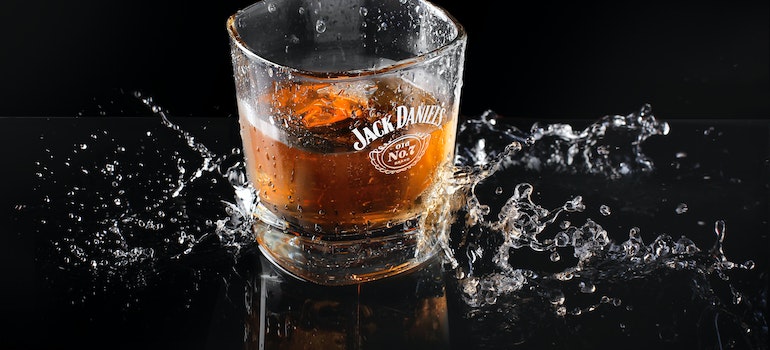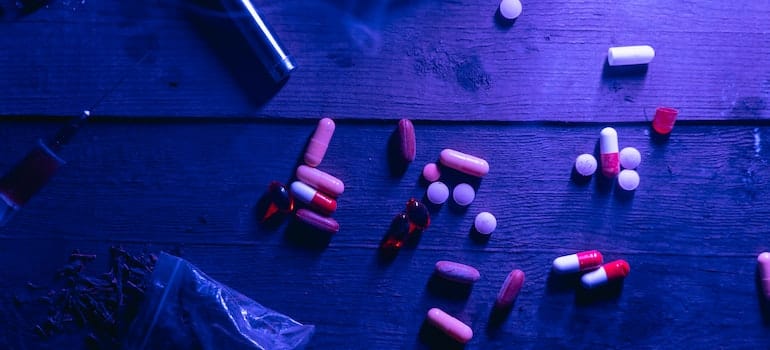Addiction is rarely the only mental health issue a person encounters in their life. In fact, almost 40% of people who abuse alcohol and more than 50% of people who abuse drugs suffer from another serious mental illness. If you are one of them, then you’ll want to seek treatment for both disorders you are diagnosed with. But is it possible to treat dual diagnosis in Parkersburg rehab center? Or are addiction treatment facilities for substance use disorders only? The answer will, of course, depend on the rehab center. Some addiction rehab centers WV do offer treatment for all the common co-occurring disorders. Others only treat a select few mental illnesses in addition to addiction. Yet others do not offer any special treatment for a dual diagnosis. So if it’s important for you to receive therapy for a co-occurring disorder, you’ll need to choose the right treatment facility.
What is a dual diagnosis?
When someone has a dual diagnosis it simply means that they suffer from two (or sometimes more) disorders at once. For people who struggle with addiction, one of the diagnoses is typically substance abuse disorder. The other can be anything from anxiety to OCD to schizophrenia. It is recommended that those who suffer from multiple mental illnesses in addition to addiction receive treatment for dual diagnosis in WV. This type of rehab addresses not only the physical and mental aspects of addiction but also the other mental disorders the person suffers from and the way those disorders affect their addiction.

What are the most common co-occurring disorders?
People who struggle with substance abuse can suffer from a wide variety of mental health issues. Sometimes, the poor mental health is due to the substance use and its effects. Other times, the existing struggles with mental health may trigger substance use instead. Among the most common disorders found in addicts are anxiety, depression, and personality disorders. But other disorders are possible too.
Anxiety and panic disorders
Anxiety is a broad category of disorders characterized by irrational, excessive, constant, or uncontrollable worry, fear, and dread. People with anxiety may react to specific triggers (such as social situations, family interactions, work, etc.). Or they may experience a general unease without an apparent cause. Untreated and uncontrolled anxiety can often lead to panic attacks.
Anxiety may precede addiction or be a consequence of it. Some people who suffer from anxiety use substances (especially depressants like alcohol and opioids) to combat their symptoms, which then leads to addiction. Others start experiencing anxiety over their addiction (the fear of being found out, of overdosing, or other consequences of substance use. Some drugs even mimic the physical symptoms of anxiety, which can in turn cause the brain to misinterpret signals from the body and assume there is an objective threat to worry about.

By some estimates, up to 20% of adults in the US suffer from some form of anxiety. Anxiety is one of the most common mental disorders in the developed world today. As such, it is relatively well researched and understood. Effective treatment is, consequently, also widely available. But if your anxiety is interwoven with addiction, it is best to seek treatment for addiction and anxiety in combination. Only addressing one aspect of your mental help is not likely to be effective – if your anxiety and addiction are connected, treating addiction alone may not give you the results you want as the anxiety can cause you to relapse.
Depression
Depression is another very common mental disorder with around 5% of the world population battling it every day. It may be mild, moderate, or severe and is typically characterized by feelings of sadness, numbness, depersonalization, hopelessness, and despair. Like anxiety, it is common among addicts and many people who treat dual diagnosis in Parkersburg rehab center suffer from it; some people use substances (in particular alcohol and opioids) to self-medicate for depression while others may become depressed after experiencing the devastating effects addiction can have on one’s life.
Depression can be treated successfully with therapy, medication, or a combination of both. In dual diagnosis treatment for depression and addiction, you can receive this type of treatment in conjunction with addiction rehab. Combining treatment for depression with rehab is likely to give better results as leaving depression untreated will make your rehab harder – depression will demotivate you and sap your energy, making it impossible for you to effectively participate in addiction treatment. It may also lead to suicidal ideation, which increases the risk of overdose if substance use continues.
ADHD
Compared to anxiety and depression, ADHD may not seem like a particularly severe disorder that correlates with addiction. But there is a reason ADHD correlates so highly with precisely anxiety and depression – this condition can and often is crippling for the people who live with it. It affects the way the brain produces dopamine, causing an imbalance between the levels of dopamine and dopamine transmitters. This can cause a variety of issues, including problems with impulse control, focus, and emotional regulation.
If you know how drugs, especially stimulants, work, you may recognize dopamine as one of the happy hormones whose levels some illegal substances increase. In fact, ADHD is treated with the use of regulated amphetamine-based stimulants. Unfortunately, people with ADHD are especially prone to addiction; they may start to abuse their prescription medication or even turn to illegal stimulants like meth. It is important to address these issues in treatment for addiction and ADHD because without proper therapy, they will almost certainly continue.
Trauma, PTSD, and C-PTSD
Trauma is one of the most common triggers for substance use so many people who treat dual diagnosis in a Parkersburg rehab center suffer from post-traumatic stress disorder (PTSD) or complex post-traumatic stress disorder (C-PTSD). Both physical and mental trauma can cause the severe anxiety, flashbacks, hypersensitivity to stimuli, and sleep issues that come with PTSD. It is, therefore, no wonder that many people turn to substances as a way to deal with these symptoms.

PTSD alone can severely affect a person’s day-to-day life. When addiction follows PTSD, the effect on daily life only worsens. It is, therefore, important to seek treatment for PTSD and addiction both to improve your overall mental health and prevent relapse due to residual PTSD symptoms in the future.
Personality disorders
People who suffer from personality disorders have rigid and unhealthy patterns of thinking which cause them to act seemingly irrationally, especially in relation to others. These unhealthy thought patterns often lead to unhealthy coping mechanisms, such as substance abuse. But the rigidity of those same patterns makes it difficult to break out of them as if they were just another habit. This is why addicts with personality disorders are best served in combined treatment for addiction and personality disorders in WV. Such treatment may include detox, rehab, therapy, and medications depending on the type of personality disorder.
Eating disorders
A person with an eating disorder (ED) has an unhealthy, often obsessive relationship with food typically due to a severely distorted body image. Although this isn’t always the case, many ED sufferers start with restricting food specifically to lose weight. Some drugs – most notably cocaine – do suppress appetite, often leading to rapid weight loss. To a person with an ED, this side effect may seem more important than all the other issues that addiction may bring.
ED sufferers typically don’t abuse substances for any rational reason; their substance abuse is secondary to the body dysmorphia that control their thinking. For this reason, it is necessary to address addiction as a part of an ED in dual diagnosis treatment for addiction and EDs. Until the eating disorder is addressed as well, addiction treatment is unlikely to be successful.
Schizophrenia
Schizophrenia is a very serious neurological condition which alters a person’s perception of reality. Schizophrenics may become convinced that they are seeing ghosts, that the government is spying on them, or that the devil is talking to them. Hallucinations, delusions, and severely disordered thinking can make it extremely difficult if not impossible to make rational decisions, especially without treatment.

If a person who suffers from schizophrenia abuses substances, it is impossible to treat that abuse without also treating the disorder. A schizophrenic may not believe they are addicted or may not believe that the substance they’re addicted to is bad for them; in fact, they may become convinced of the exact opposite. This is why it is necessary for schizophrenics with substance abuse disorder to seek treatment for addiction and schizophrenia simultaneously. Once the symptoms of schizophrenia are under control, addiction rehab will also be more likely to succeed.
Do you need to treat dual diagnosis in a Parkersburg rehab center?
There is a number of reasons why it may be difficult for you to determine whether you have a dual diagnosis or not. The stigma surrounding mental health, especially schizophrenia and other serious neurological issues, makes it harder for people to admit even to themselves that they need help and even harder to seek that help. Addiction adds a further complication as substances may mimic the symptoms of a variety of mental health conditions. This is why the only real way to receive a dual diagnosis is to be assessed by a mental health professional (preferably one that specializes in addiction and co-occurring disorders).
There are, however, some reasons to suspect you may suffer from co-occurring disorders. Here are some signs that you may need treatment for a dual diagnosis:
- you started experiencing symptoms of a given mental illness before you started abusing drugs
- you’ve been diagnosed with a mental illness before
- you have a history of mental illness (aside from addiction) in the family
- you experience symptoms of a given mental illness regardless of whether you are using substances or not
- using substances has worsened some potential symptoms of a mental illness
- your experience with substances doesn’t fit the norm (for example: you hear voices when you get high, your brain functions normally when taking a dose that would get someone else high, etc)
Is it possible to treat dual diagnosis in a Parkersburg rehab center?
The short answer to whether you can receive treatment for a dual diagnosis in a rehab center is that it depends on the rehab center. The main goal of any rehab center is to provide drug and alcohol addiction rehab in WV and that is what you will find in all of them. Rehab typically includes a combination of detox, medication, and therapy. But different facilities will have different approaches to rehab.

Some may not be able to prescribe or dispense medications. Others will always include medication-assisted treatment instead of focusing heavily on therapy. Some only have outpatient programs. Others offer different levels of care, including inpatient programs and sober living. Some specialize in cognitive-behavioral therapy. Others experiment with novel approaches to addiction therapy and offer a wider variety of options. Similarly, some rehab centers in WV will treat a dual diagnosis; others will not. It’s important to remember this because treatment for dual diagnosis is not available in every rehab center. If you do want to treat your dual diagnosis in a rehab facility, you will need to look specifically for one that offers such treatment.
Why do some rehabs in WV treat co-occurring disorders and others don’t?
There are many reasons why an addiction treatment center may not provide treatment for co-occurring disorders as well. Most often, this has to do with the type of addiction therapy the rehab provides and the people who provide that therapy. Different co-occurring disorders will require different approaches to therapy. If a rehab center is to treat a co-occurring disorder, it needs to employ a therapist that specializes in the suitable form of therapy.
Other reasons why a rehab may not treat a deal diagnosis include the lack of funds, the lack of available spots in therapy, the mismatch between the complexity of a dual diagnosis and the level of care provided at the facility, a treatment philosophy that focuses strictly on addiction, and more.
How does one treat dual diagnosis in a Parkersburg rehab center?
The difference between treatment for addiction and treatment for a dual diagnosis is mostly in the therapy you attend. Regardless of whether you have a co-occurring disorder or not, you will need to start your rehab with detox. You will also need to attend group therapy for addiction just like everyone else. But if you have a dual diagnosis, you typically need a bit more help than someone who doesn’t. For this reason, you may also need additional therapy, such as:
- individual therapy for addiction where you will work with a therapist one-on-one; this works for co-occurring disorders because the therapist can focus on you and you alone in order to address your unique mental health issues
- cognitive-behavioral therapy (CBT) which is effective in treating multiple mental health issues, including anxiety, depression, personality disorders, and obsessive disorders (such as OCD and ED); CBT is helpful in a dual diagnosis because it teaches you to break out of unhealthy thinking patterns that your mental illness causes and which in turn contribute to your addiction
- holsitic therapy for addiction which combines multiple approaches to mental and physical health in order to address all aspects of addiction simultaneously; this approach works for a dual diagnosis because it doesn’t just focus on sobriety but on overall healing.

The other big difference between treatment for addiction and treatment for a dual diagnosis is medication. Having a co-occurring disorder is unlikely to affect medication you are prescribed for your addiction – the substance you are addicted to is what matters for medication-assisted treatment. But many co-occurring disorders are treated with medication. So you may be put on SSRIs, beta-blockers, stimulants, or anti-psychotics if you have a co-occurring disorder that such medication can help with.
Why should you treat dual diagnosis in a Parkersburg rehab center?
Depending on where you live and the mental health issues you are facing, it may be difficult for you to find an addiction treatment center suitable for your dual diagnosis. But you should not give up. The effort of finding the right rehab center will pay off in the end because there are many advantages to treating co-occurring disorders together.
The interplay of addiction and other mental health issues
While SUD and a co-occurring disorder are separate diagnoses, it would be a mistake to treat them as independent of each other. If you have an addiction and a mental illness, odds are they are connected. The connection between substance abuse and mental health goes both ways: your mental health affects your addiction and your addiction affects your mental health. They are two sides of the same coin. So it only makes sense to treat them as such.
Maintaining sobriety
It is important to keep in mind that after rehab, you still need to go back to daily life. And if you suffer from a mental illness, that will affect your daily life too. You will be more likely to relapse and end up in alcohol addiction rehab WV again if you don’t address your overall mental health as well as your addiction. To avoid this, you should learn how to live with your co-occurring disorder without turning to substances. Dual diagnosis treatment can help you with this by teaching you healthy coping mechanisms.

Efficiency and cost-effectiveness
Ultimately, both your addiction and your mental illness negatively impact your life. You will, therefore, need to address both to improve your life. Going to therapy for mental health and for addiction separately will be time-consuming and expensive. It only makes sense to treat a dual diagnosis in a Parkersburg rehab center; that way, you don’t need to double your time in therapy. Furthermore, you can use insurance to pay for rehab. If that rehab includes therapy for a dual diagnosis, then you’re avoiding the extra costs of attending therapy for your co-occurring disorder separately.
How to ensure you receive treatment for a dual diagnosis in a Parkersburg rehab center
If you suspect you may suffer from a co-occurring disorder, then you should do what you can to ensure that you receive treatment for it. The most important thing is finding the right rehab center in WV. The right rehab can make all the difference not just for your dual diagnosis but also for your sobriety in general.
Check if drug and alcohol addiction treatment centers in your area offer treatment for co-occurring disorders
You’ll probably want to attend your meth rehab in WV somewhere near where you live. This is especially important if you’re planning on some kind of an outpatient program. A rehab center across the state is never the best choice. So start by finding your nearest treatment centers instead. Check if any of them offer dual diagnosis treatment. If they don’t, start gradually expanding your search. Depending on where you live, the nearest suitable rehab may be as far as a few hours away.
Make sure the rehab center you’ve chosen will treat your specific diagnosis
You need to find a treatment center that treats both your specific addiction and you specific mental disorder. This won’t always be the case because there is a wide variety of dual diagnoses. Some rehabs may offer the right addiction treatment without the right therapy for your mental disorder. Others may have the right approach to therapy but not specialize in your addiction. If you want to treat a dual diagnosis, you need a rehab center that can do both.

Contact the rehab facility and discuss potential concerns with them
It’s very important that you feel comfortable at a rehab center. You must be able to trust the people who work their with your mental health and sobriety. So if you have any questions, don’t hesitate to ask. A good treatment center will always be open about their practices. Not sure the therapy they provide is right for you? Afraid that their addiction program isn’t specific enough? Concenred about your insurance options? Contact the rehab facility and talk to them. This is the perfect opportunity to both dispell your worries and get a feel for the kind of treatment you will receive in this rehab.
What to do if you can’t treat dual diagnosis in a Parkersburg rehab center?
There are many reasons why you may not be able to get treatment for a dual diagnosis in rehab. The nearest rehab center that treats your disorder may be to far away. Or perhaps you’re not able to afford the right facility at the moment. The good news is that you have other options.
Different facilities for different treatments
If you can’t find a rehab that treats your dual diagnosis, go to rehab for your addiction and see a therapist for your mental illness somewhere else. You can, for example, detox at a medical detox center, join an outpation program for addiction, and attend individual therapy for your depression in three entirely different facilities. Although it sounds complicated, it usually isn’t. Different facilities specialize in different things. So you may actually have more luck looking for highly specific individual treatments than the combination of medication, addiction therapy, and regular therapy all in one place.
Treating addiction and other mental health conditions separately
Another option is to focus on one thing at a time. Start by treating your addiction, then go to therapy for your mental disorder when you’re sober. This is often the best solution when you simply cannot wait with rehab. If you are at the point where overdose is a real concern, check yourself into a residential rehab in WV at the nearest facility. Everything else can wait. Once you’ve completed rehab, you can start looking for therapists.

Alternatives to professional help with mental health
Your best option for dual diagnosis treatment is always a program at a rehab facility. But sometimes, that simply isn’t in the cards. You may not have a suitable addiction treatment facility in the area. Or you may not be able to afford therapy. If that is the case, attend the rehab you can and look for alternatives to professional therapy as a temporary solution. There may be a volunteer church group that can offer some support. Or you can look up ways to cope online. Although this isn’t a permanent fix, it can help bridge you over until you are in a position to seek professional help for your mental health.
Prepare to treat dual diagnosis in a Parkersburg rehab center
If you have found a way to treat dual diagnosis in Parkersburg rehab center, then you should mentally prepare for the process. The truth is that you have an uphill battle ahead of you. Rehab is hard enough on its own. Mental illness only makes it more difficult. So be ready to commit to your treatment plan. It can take some time to find the right combination of medication and therapy so keep an open mind about trying different things. It’s important that you are aware of how difficult and long treatment for a dual diagnosis can be. But at the end of the day, going through the treatment is worth it. So don’t give up – work for the better life you deserve.



